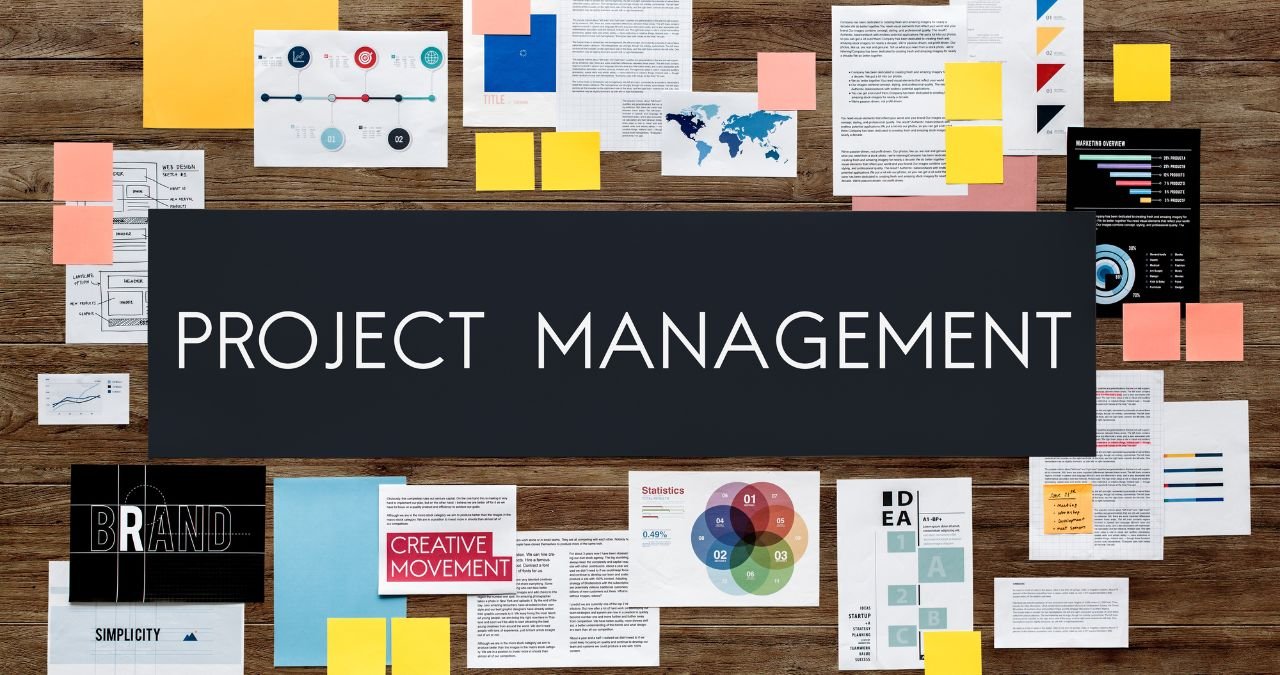challenged to deliver high-quality results within short turnaround times. The ability to streamline agency operations is crucial for success in this environment. Inefficient operations can hinder productivity and profitability, leading to missed deadlines, miscommunications, and resource allocation issues. This is where project management comes into play – it serves as a powerful tool for agencies to achieve their goals effectively and efficiently.
Project management is a structured approach that encompasses various principles and methodologies aimed at planning, executing, and closing out projects. By implementing project management practices, agencies can optimize their operations, foster collaboration, and enhance overall performance.
Table of Contents
Why Streamlining Agency Operations is crucial
Managing multiple projects simultaneously is a common challenge for agencies. Without streamlined operations, they face various difficulties in coordinating efforts, managing resources, and meeting client expectations. This can have a significant impact on productivity and profitability.
Inefficient operations lead to miscommunication between team members and stakeholders, resulting in delays and errors. Without a clear structure, agencies struggle to prioritize tasks and allocate resources effectively. This can lead to overloading certain team members while others are underutilized.
Additionally, without proper project management, agencies may face difficulties in tracking project progress, making timely adjustments, and ensuring that project deliverables meet the client’s requirements.
By streamlining agency operations, these challenges can be addressed. Project management provides a framework to define project goals, objectives, and timelines, allowing for better coordination, resource allocation, and communication.
The Role of Project Management in Streamlining Agency Operations
Project management plays a vital role in streamlining agency operations. It brings structure, organization, and clarity to the chaos of managing multiple projects. Here are some key ways in which project management contributes to streamlining agency operations:
1. Defining Objectives and Goals
Project management starts with clearly defining project objectives, goals, and deliverables. This ensures that everyone involved in the project understands the desired outcomes from the start. By clearly defining project scope and expectations, agencies can avoid scope creep and better manage client expectations.
2. Planning for Success
Project management involves meticulous planning to set the project on the path to success. A comprehensive project plan includes tasks, timelines, deadlines, and resource allocation. Through effective planning, agencies can identify potential bottlenecks, manage risks, and ensure that all necessary resources are available when needed.
3. Coordination and Communication
Effective coordination and communication are crucial for successful project execution. Project management establishes processes and tools for assigning responsibilities, managing dependencies, and tracking progress. With regular project status updates and collaborative platforms, teams can stay aligned, resolve issues promptly, and make necessary adjustments to keep the project on track.
4. Resource Management
Project management ensures that resources, including personnel, budget, and materials, are allocated efficiently and effectively. By clearly defining roles and responsibilities, agencies can optimize resource utilization and avoid overburdening specific team members. This leads to better productivity and reduces the risk of burnout.
5. Tracking and Monitoring
Project management provides tools and techniques to monitor project progress and track key metrics. This allows agencies to identify potential issues early on and make necessary adjustments to avoid delays or quality issues. By tracking project milestones and performance, agencies can ensure that projects are on track and aligned with client expectations.
6. Lessons Learned and Continuous Improvement
Project management emphasizes learning from past experiences and applying those lessons to future projects. Through a systematic review of project outcomes, agencies can identify areas for improvement and future optimizations. By documenting best practices and lessons learned, agencies can enhance their operations and deliver better results in future endeavors.
Key Elements of Project Management for Streamlining Agency Operations
To streamline agency operations effectively, project management includes several key elements. These elements span across three main phases of a project: planning, execution, and closing.
A. Planning Phase
In the planning phase, agencies define project goals and objectives, taking into consideration factors such as scope, budget, and timeline. The planning phase involves:
- Defining project goals and objectives
- Creating a project timeline and setting deadlines
- Allocating resources effectively
A well-defined plan sets the foundation for successful project execution and ensures that all team members are aligned with the project’s objectives.
B. Execution Phase
The execution phase involves managing project tasks, assigning responsibilities, and monitoring progress. Key elements of the execution phase include:
- Managing project tasks and assigning responsibilities
- Monitoring progress and making adjustments as needed
- Ensuring effective communication and collaboration
By systematically tracking progress, agencies can identify potential bottlenecks and take prompt action to keep the project on track. Effective communication ensures that team members are aligned, and collaborations are smooth.
C. Closing Phase
The closing phase marks the completion of the project. It offers an opportunity to evaluate project outcomes and set the stage for future improvements. Key elements of the closing phase include:
- Reviewing project outcomes and evaluating success
- Documenting lessons learned and best practices
- Identifying areas for improvement in future projects
By reviewing the project outcomes, agencies can identify what worked well and what could be improved in future projects. This phase also allows agencies to capture lessons learned, ensuring that knowledge gained is not lost but shared across the organization for continuous improvement.
Tools and Technologies for Effective Project Management
Implementing project management in agencies is made easier with the help of various tools and technologies. These tools provide features that enable agencies to streamline their operations and enhance team productivity. One of the popular agency management software is Function Point. A flexible agency management tool that uses boards, lists, and cards to organize and track project tasks. It is a comprehensive project management platform that offers task management, team collaboration, and project tracking features.
This agency management software offers features such as task tracking, resource allocation, collaboration capabilities, and reporting functionalities. By leveraging this tool, agencies can centralize project information, improve team coordination, and ensure smoother project execution.
Challenges and Considerations in Implementing Project Management in Agencies
Implementing project management in agencies may face challenges. It is important to address these challenges effectively to ensure successful implementation. Some common challenges and considerations include:
Resistance to Change and Fostering Adoption
Resistance to change is a common hurdle when introducing new processes and tools. To overcome this, agencies should emphasize the benefits of project management and involve stakeholders in the decision-making process. Creating a culture of continuous improvement and providing proper training and support can help foster adoption.
Addressing Hurdles and Obstacles
Agencies may face obstacles such as lack of project visibility, poor communication, and inadequate resources. It is crucial to address these hurdles by ensuring that project management practices address these challenges directly. Regular communication, transparency, and a clear escalation process can help overcome these obstacles.
Continuous Improvement and Adaptation
Project management is not a one-time implementation; it requires continuous improvement and adaptation. Agencies should regularly review their project management practices, seek feedback from team members, and identify areas for improvement. By adapting to changing needs and leveraging new technologies, agencies can continuously enhance their operations and deliver better results.
Conclusion
Streamlining agency operations through project management is crucial for success in today’s fast-paced and competitive environment. By implementing project management methodologies, agencies can achieve better coordination, communication, and efficiency. Utilizing tools and technologies further enhances these efforts. However, continuous improvement and adaptation are necessary for project management practices to remain effective in transforming agency operations and driving long-term success. With the right project management approach, agencies can streamline their operations, meet client expectations, and deliver high-quality results consistently.
Also Read : How To Select The Best Project Management Software For Your




